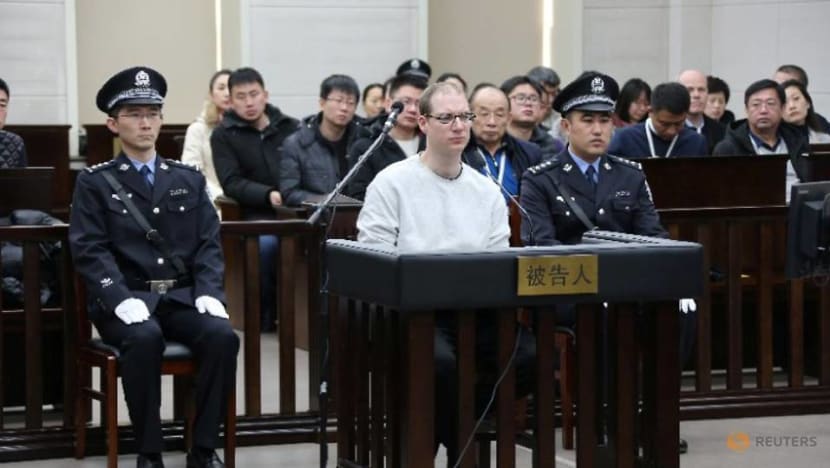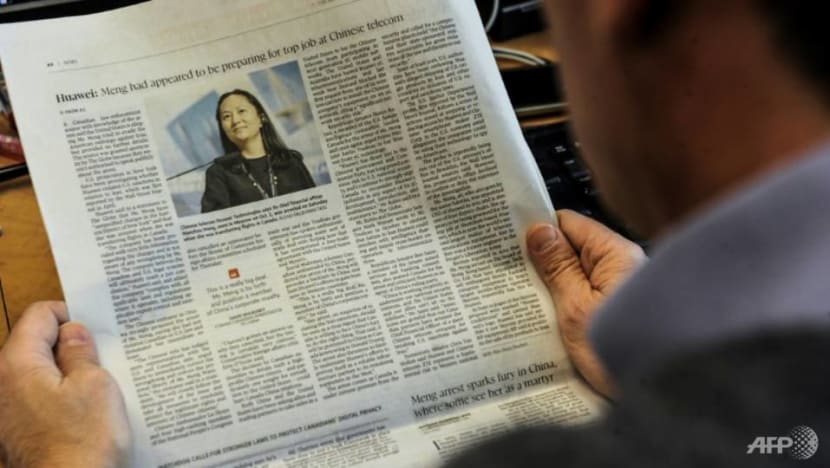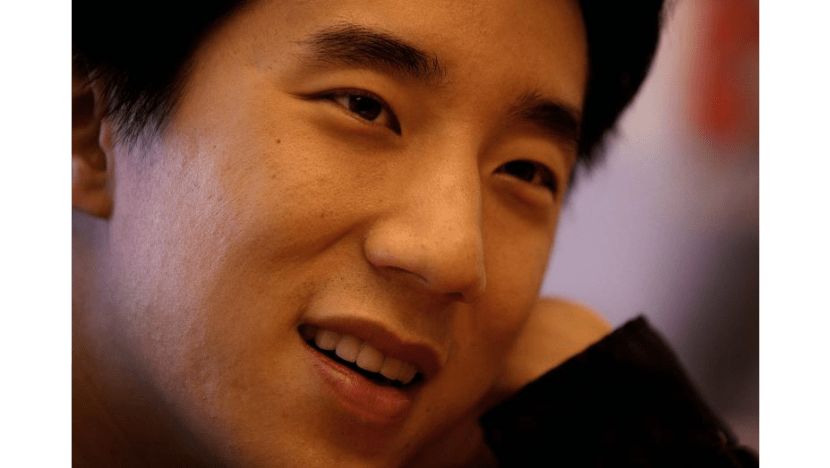commentary Commentary
Commentary: Don’t expect a reprieve as China comes down hard on Canadian drug suspect
The pressure to wind back Canadian Robert Lloyd Schellenberg’s death sentence will only increase but the Chinese government will likely uphold its principled stance on this matter, says commentator Tom McGregor.

FILE PHOTO: A handout photo showing Canadian Robert Lloyd Schellenberg appears in court for a retrial of his drug smuggling case in Dalian, Liaoning province, China, on Jan 14, 2019. (Photo: Intermediate People's Court of Dalian/Handout via REUTERS)
BEIJING: Canadians are learning some hard life lessons that Justin-Trudeau values do not have much traction beyond the nation’s borders, especially in Asia, where countries on the continent take a very harsh stance on illicit drugs.
Canadian citizen Robert Lloyd Schellenberg was arrested in 2014 for allegedly smuggling 222kg of methamphetamine. In a prior trial, he claimed innocence and alleged that he was framed by a former friend, Xu Qing, a Chinese native, but was convicted and sentenced to 15 years in prison.
Now a Chinese court has sentenced him to death after his prison sentence was deemed too lenient, sparking accusations of China engaging in diplomatic retaliation, amid discussions that this move was somehow linked to Canada’s arrest of Huawei’s chief financial officer Meng Wanzhou.

READ: Tantrum diplomacy in the arrest of one Huawei executive, a commentary
TOO LENIENT
When Schellenberg was sentenced in 2014, many Chinese were outraged over what they saw as a travesty of justice, claiming the judge had granted Schellenberg a lighter sentencing than what would have been dished out to a Chinese perpetrator for the same crime - because he was white.
The news had sparked a discussion on Chinese social media platforms about white privilege.
After all, he had been found with a staggering amount of over 200kg of meth. Many Chinese traffickers convicted for peddling smaller amounts had met the gallows.
This huge outcry against expat leniency had inspired another Chinese prosecutor to appeal to the court to increase his sentencing, where the court found Schellenberg guilty of being part of an international syndicate, in plotting to smuggle pellets of meth out of Dalian to Australia.
Over the years, the Chinese have grown weary of hearing tales of foreigners who come to the country to party, womanise and spread the use of drugs. Schellenberg himself had been charged with several drug-related offences even back home in Vancouver, inconsequential to the case at hand but unhelpful for his image nonetheless in the court of public opinion.
Since 2014, the Chinese government has launched a nationwide crackdown on drugs, sparing no one. Even Hollywood superstar Jackie Chan’s son Jaycee was busted in May 2015.

In this context, the Chinese government understandably does not want to be seen as weak or giving Schellenberg some form of special dispensation because of diplomatic pressure. When Chinese citizens and residents obey the laws of the land, they expect foreigners to do the same and for justice to be dispensed if not.
Many Chinese take a moralistic view towards drugs and there is strong support towards China’s tough anti-drug laws, which prescribes the death penalty for anyone found guilty of drug trafficking of more than 50 grams of heroine or meth.
Such attitudes clearly differ from Canada, a nation that has liberalised its drug laws over the years, including making it legal to buy marijuana starting last October. But repugnance to the laws of one country aside, the fact is that people have to obey the laws of the land that they visit.
READ: A winter of discontent awaits after Huawei executive arrested, a commentary
DETERIORATING CANADA-CHINA TIES
The timing of Schellenberg’s retrial has been unfortunate, and no doubt, conflation with the Meng Wanzhou situation will be hard to avoid, as observers try to read the tea leaves on the implications for China-Canada relations.
China has frequently come under pressure from the West on its application of capital punishment but feels keenly the need to uphold its domestic laws, notwithstanding that Schellenberg would be the first Canadian to be executed in China if so.
In this case, the shock of Schellenberg’s sentence against the backdrop of deteriorating relations between Canada and China in recent months no doubt left Canadian Prime Minister Justin Trudeau feeling the heat. Expressing great concern, Trudeau has accused Beijing of having chosen to arbitrarily applying capital punishment.
Human rights organisations and the Canadian government are crying foul over the death penalty sentence imposed on Schellenberg and exerting pressure on China to back down from the court’s ruling.
Schellenberg has 10 days to appeal against the sentencing, and his case may be reviewed by a higher court before the death sentence is carried out.
In the coming days, this pressure will only increase but it would be imperative for the Chinese to uphold its principled stance on this matter.
Tom McGregor is a commentator on Asia-Pacific affairs based in Beijing.












